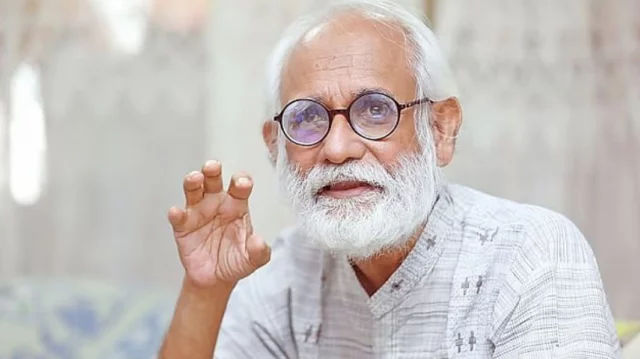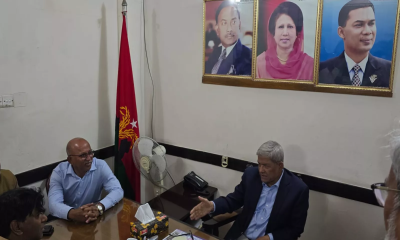Following his release on bail in an attempted murder case filed at Khilgaon Police Station, senior Supreme Court lawyer Z I Khan Panna spoke to the media, stating that the allegations against him are not rooted in political motives.
"I do not believe this case was initiated for political reasons. It appears to stem from personal interests, possibly involving individuals from my hometown of Muladi in Barishal," he said.
Panna stressed that no amount of legal pressure would deter him from voicing his opposition to injustice.
The High Court granted him anticipatory bail on Monday, allowing him to remain free pending the submission of the police report in the case.
Justices A K M Asaduzzaman and Syed Enayet Hossain oversaw the proceedings.
Panna was represented by a team of senior lawyers, including Ahsanul Karim, Ali Ahmed Khokon, Mohammad Shishir Monir, and Mohammad Hossain.
The case, which has drawn significant public attention, was filed on October 17 at the Khilgaon Police Station.
Among the 180 individuals named in the case are prominent political figures, including Awami League General Secretary Obaidul Quader and former Home Minister Asaduzzaman Khan, with Z I Khan Panna listed as the 94th defendant.
The case stems from an incident during a student protest on July 19, where Ahmadul Islam was allegedly shot and assaulted.
His father, Md. Bakir, lodged the complaint on October 17. The First Information Report (FIR) alleges that police and members of the Awami League, along with associated groups, opened fire and used grenades to disperse the peaceful demonstration at the Shukkur Ali Garments intersection in Khilgaon.
Reports indicate that Ahmadul was shot in the left leg and subsequently attacked by assailants.
As the case unfolds, Z I Khan Panna’s situation underscores the persistent tensions surrounding political dissent and civil rights in Bangladesh, reflecting the broader implications for individuals participating in protests against perceived injustices.
With this development, attention remains focused on the judiciary and the political climate in Bangladesh, where legal disputes continue to intersect with matters of personal and political freedom.














-20260304091720.webp)






-20260303080739.webp)










-20260225072312.webp)





-20260228064648.jpg)
